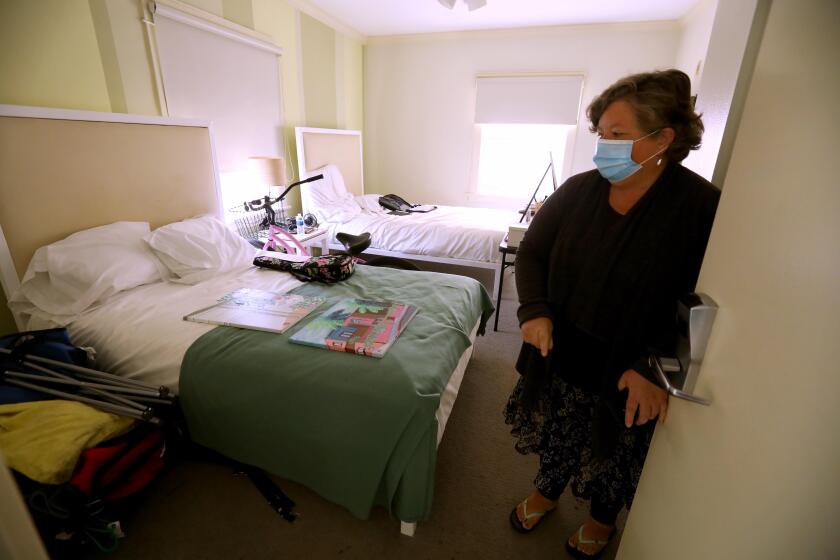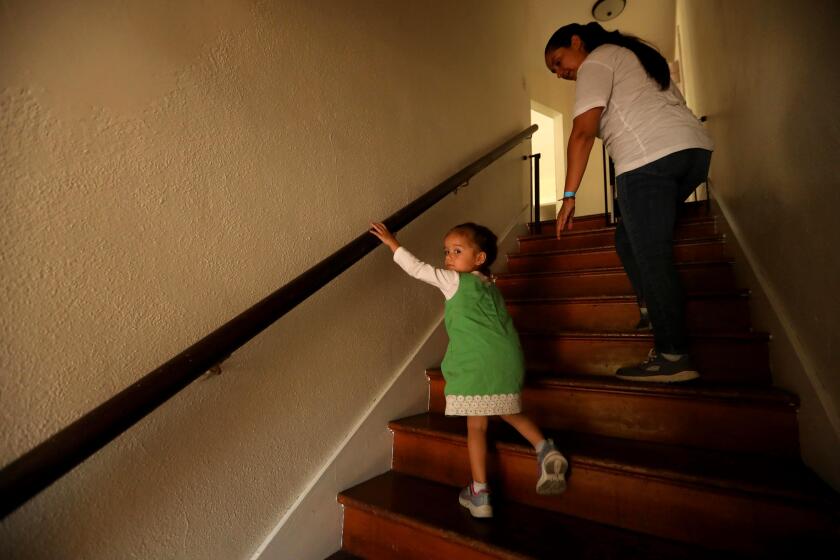Strategies for Area’s Wage-Housing Gap
“Housing Less Affordable as Rent-Wage Gap Widens” [Oct. 3] might as well have been titled “Housing Less Affordable as Population-Multifamily Units Gap Widens.”
As population grows and not enough new housing units are built, of course rents go higher for everyone. Local governments prefer retail outlets over housing because tax income is higher from sales than from property. Thus rents can only go up.
There is no hope that subsidized housing can fill the gap. People are just going to have to share housing. The cure might be for local government to get more than 11% of the property taxes. But since this would flow power back from the state government, only an initiative can make this happen.
Raymond J. Rostan
Santa Ana
*
I wish the media would stop framing the housing crisis in Southern California as one that affects only the poor.
This is a problem that reaches right up into the middle class. I have seen plenty of teachers, salespeople, office workers and others who are struggling to keep a roof over their heads while housing prices skyrocket. Their fear of losing that roof is very real.
Michael Adams
Pacific Palisades
*
Jose Fonseca and Jose Portillo can barely afford to pay their respective $350- and $551-a-month rents for their one-bedroom apartments. In addition, we learn they each have a wife and at least one child.
“I’ve never struggled like this,” explains Mr. Portillo. His daughter, Maria, is pictured frowning in the rundown-looking room.
Councilman Eric Garcetti says the lack of affordable housing is “the greatest challenge facing the city.”
Does anyone ever think to ask why a man who makes minimum wage or near minimum has a wife and children? I think the greatest challenge facing the city of Los Angeles is irresponsible people having children that they cannot afford to feed, clothe and educate properly.
Scott Bellomo
Santa Monica
*
To Councilman Eric Garcetti, chairman of the housing and community development committee, I suggest he eliminate rent control in the city of Los Angeles. Any economics student will tell you that rent caps prevent landlords from making improvements to the apartments.
To the City Council members who recently quashed a development of high-rent apartments in downtown Los Angeles because the developer did not want to put low-income units in the development (as the low-income units are not as profitable as units at market rental), I must urge them to reconsider such shortsighted policies.
Aaron Friedland
Los Angeles



